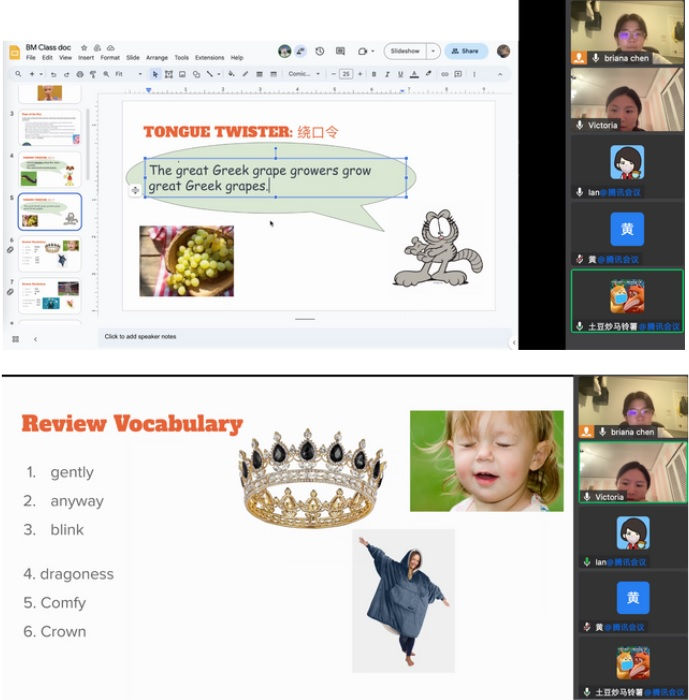Bridging Education Disparities for Sustainable Development
- Briana Chen

- Oct 20, 2023
- 4 min read
Meet Briana Chen, a high school senior from Canada whose identity is a tapestry woven with three core elements: an unwavering commitment to education, a profound passion for the arts, and a natural talent for connecting with people. Throughout her high school journey, she has actively embraced leadership roles and diverse activities, all geared toward extending the transformative reach of education into the rich tapestry of the arts. Her collaboration with the A.ware Foundation has been instrumental in ensuring that art programs become accessible to disabled children, deepening empathy for individuals from diverse backgrounds. Additionally, she has meticulously honed her communication skills through public speaking and participation in events like the Ambassadors Club and Model United Nations conferences. Briana's dedication to the arts and humanities has been recognized through awards, highlighting her unwavering commitment to these domains.
However, Briana's passion transcends personal recognition and awards. She is committed to addressing critical issues in the Asia-Pacific region, which align with Sustainable Development Goal 4. In this vast region, millions of primary and secondary school-aged children face barriers to education. UNESCO reports that, as of 2020, more than 258 million children and adolescents worldwide were out of school, underscoring the urgency of achieving Quality Education (SDG 4). With her cultural background and personal connections to China, Briana has chosen to focus on this region, driven by a deep-rooted desire to enhance English language skills and provide educational opportunities for students in both urban and rural areas. Bridging education disparities for sustainable development.

Access to Education: According to UNESCO, as of 2020, more than 258 million children and adolescents around the world were out of school, which emphasizes the urgency of achieving Sustainable Development Goal 4 (Quality Education).
Gender Disparities: Globally, there is still a significant gender gap in education. According to UNICEF, around 130 million girls of primary and secondary school age were out of school, highlighting the need to address gender disparities in education as outlined in Sustainable Development Goal 5 (Gender Equality).
COVID-19 Impact: The COVID-19 pandemic disrupted education worldwide. According to UNESCO, at the peak of pandemic-related school closures in April 2020, nearly 1.6 billion learners were affected. Innovative solutions are needed to ensure continued access to quality education, especially in marginalized and rural communities.
Online Learning Challenges: The digital divide remains a significant challenge. According to UNICEF, as of 2020, approximately 2.2 billion children lacked access to high-quality online learning, exacerbating educational inequalities. Bridging this divide is critical for achieving Sustainable Development Goals 4 and 5.
In rural regions like Guizhou and Guiyang, economic disparities and inadequate facilities exacerbate educational challenges. Economic gaps between metropolitan cities and smaller rural villages are glaring, and the lack of resources such as educators for undeveloped curriculums of languages and arts. Briana's dedication to bridging these disparities has been heightened by COVID-19, which has disrupted the education of millions of children in the Asia-Pacific region. Being fortunate to have access to the internet and educational opportunities, Briana recognizes the need for online learning services and innovative solutions to address these challenges.
Furthermore, she is aware of the ongoing issue of censorship of Western cultures in China, exemplified by the launch of a new Student Reader on Socialism with Chinese Characteristics in July 2021. Despite these obstacles, Briana believes technology will facilitate access to online learning services such as Wecom, a branch of an Asian social media platform Wechat, and bridge cultural gaps between Asia and Western societies, through the sharing of cultures in English and Chinese.
Founded Better Me
Inspired by the experiences of her friends and relatives during the COVID-19 pandemic, where they faced remote learning challenges, she founded "Better Me" in 2021. This organization offers short, engaging language classes and seeks to bridge the digital divide in education, with a vision of expanding access to quality education, especially in marginalized and rural communities. "Better Me" operates on a "CONNECT" framework, emphasizing communication, opportunity, networking, new experiences, culture, and technology.

Briana's roadmap for Better Me is ambitious. In 2021, she founded the organization, recognizing the need for accessible education in the wake of the pandemic. In 2022, she established connections with schools in China's modern regions such as Guangzhou and Shanghai, laying the foundation for future growth. In 2023, Better Me is actively engaged in educational activities, reading numerous books, and developing an online presence. In 2024, the organization plans to build on existing relationships and expand to rural schools Briana has visited in the past years. Looking forward, the focus remains on sustaining the project and passing on roles to ensure its enduring impact.

At the heart of this journey is Briana's unwavering dedication to education and the arts, her commitment to bridging educational disparities, and her determination to foster cross-cultural connections. "Better Me" stands as a testament to her mission, aiming to provide better opportunities and a brighter future for all. By addressing the gender disparities in education and advocating for equal access to quality education, she contributes to the achievement of Sustainable Development Goals 4 and 5.

"Gender equality is not a women's issue, it's a human issue. It affects us all." - Ban Ki-moon, Former UN Secretary-General



Comments